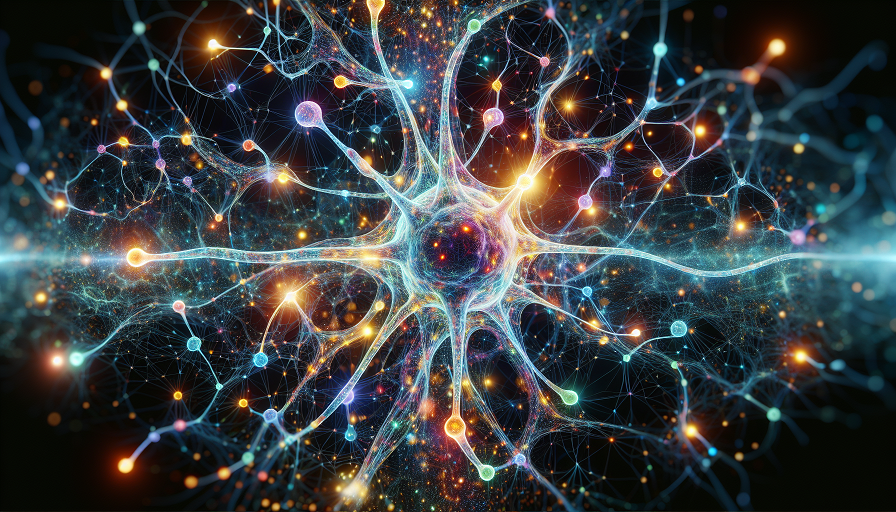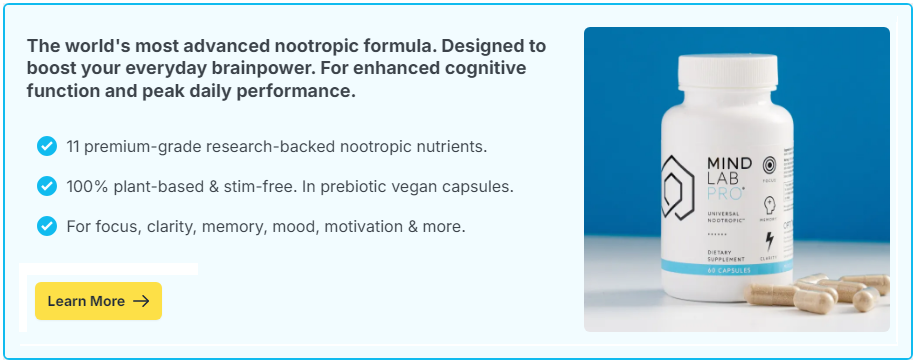
In the quest for enhanced creativity and mental performance, people are turning to unique approaches like microdosing and the use of nootropic supplements. While both methods aim to give a boost to brainpower, they originate from entirely different concepts. What roles do these approaches play in creativity, and could nootropics really mimic the sparkling creativity often associated with psychedelics?
Contents
Understanding Microdosing
Microdosing is the practice of taking small, sub-perceptual doses of psychedelic substances, like LSD or psilocybin mushrooms. This means the dose is so small that it doesn’t cause a trip or hallucinations. Instead, people report subtle benefits such as increased focus, better mood, and enhanced creativity.
The idea is that these tiny doses tweak your brain chemistry just enough to provide benefits without the mind-altering effects that typically come with larger doses of psychedelics. Microdosing has become increasingly popular in creative industries, with some people claiming it helps them think outside the box and solve problems more innovatively.
The Science Behind Microdosing
Research into microdosing is still in its infancy, but there are some promising theories. It’s believed that psychedelics may increase connectivity between different parts of the brain. This could lead to insights or ideas that wouldn’t typically arise. Moreover, psychedelics interact with serotonin receptors, potentially affecting mood and cognitive function.
However, it’s important to note that scientific evidence supporting the benefits of microdosing is limited. Many of the reported benefits are based on anecdotal evidence and self-reported data, which can be subjective and influenced by placebo effects.
Exploring Nootropics
Nootropics, often referred to as “smart drugs,” are substances that people believe can enhance cognitive function, particularly in areas like memory, creativity, and motivation. Unlike psychedelic drugs, nootropics don’t usually cause hallucinations or perceptual changes.
Some popular nootropics include caffeine, L-theanine, and various over-the-counter supplements like Omega-3 fatty acids and certain vitamins. Prescription drugs such as Modafinil also fall under this category and are used by some for cognitive enhancement.
How Nootropics Work
The mechanisms behind nootropics vary widely depending on the substance. Some nootropics, like caffeine, work by stimulating the nervous system, leading to increased alertness and energy. Others, like Ginkgo Biloba, are thought to improve brain function by increasing blood flow to the brain.
One common goal among most nootropics is to support or enhance the brain’s natural neurotransmitter levels. By making neurotransmitters more effective, these substances may help you concentrate better, boost your memory, and perhaps even encourage more creative thinking.
Creativity: The Psychedelics vs. Nootropics Debate
There’s an ongoing debate about the effects of psychedelics and nootropics on creativity. When we talk about creativity in relation to these substances, we refer to the ability to think in new and novel ways, breaking free from conventional thought patterns.
Psychedelics and Creativity
Historically, psychedelics have been tied to significant cultural and creative movements. Users report experiences of profound insight, lateral thinking, and a heightened sense of connection, which can translate into increased creative output. The increased brain connectivity and unique experiences provided by psychedelics lend themselves well to producing creative thought.
Nootropics and Creativity
Nootropics aim to enhance creativity in a more subtle way. By improving concentration, motivation, and mood, they potentially create a more favorable environment for creative work. While they might not spark bold, new ideas in the same way psychedelic experiences can, nootropics can help sustain the focused effort required to bring creative ideas to fruition.
Can Nootropics Mimic Psychedelics?
Given the stark differences in how each affects the brain, it’s unlikely that nootropics could ever fully mimic the psychedelic experience. Psychedelics have a unique ability to temporarily dissolve certain mental barriers, which can dramatically alter perception and thought processes. Nootropics, on the other hand, help nurture brain health over time and enhance existing cognitive processes.
However, if the goal is to cultivate creativity in a tangible, steady manner rather than experiencing a radical shift in perception, nootropics may indeed serve as a useful tool. They offer a stable, dependable alternative without some of the risks associated with psychedelic substances.
Tips for Boosting Creativity Safely
- Practice Mindfulness: Techniques such as meditation can help you become more aware of your thoughts and may lead to enhanced creativity.
- Get Enough Sleep: A well-rested brain is more capable of forming new and innovative thoughts.
- Nutrition: A balanced diet with a focus on brain-friendly nutrients like Omega-3s can support cognitive health.
- Exercise Regularly: Physical activity can boost mood and cognition, providing a fertile ground for creative ideas.
- Try New Things: Challenging yourself with new experiences can broaden your thinking and spark new creative insights.
Ultimately, whether you choose to experiment with microdosing, explore nootropics, or pursue alternative methods, the quest for enhanced creativity is a personal journey. It’s vital to consider the potential effects and consult knowledgeable sources whenever you’re exploring new frontiers for brain health.

